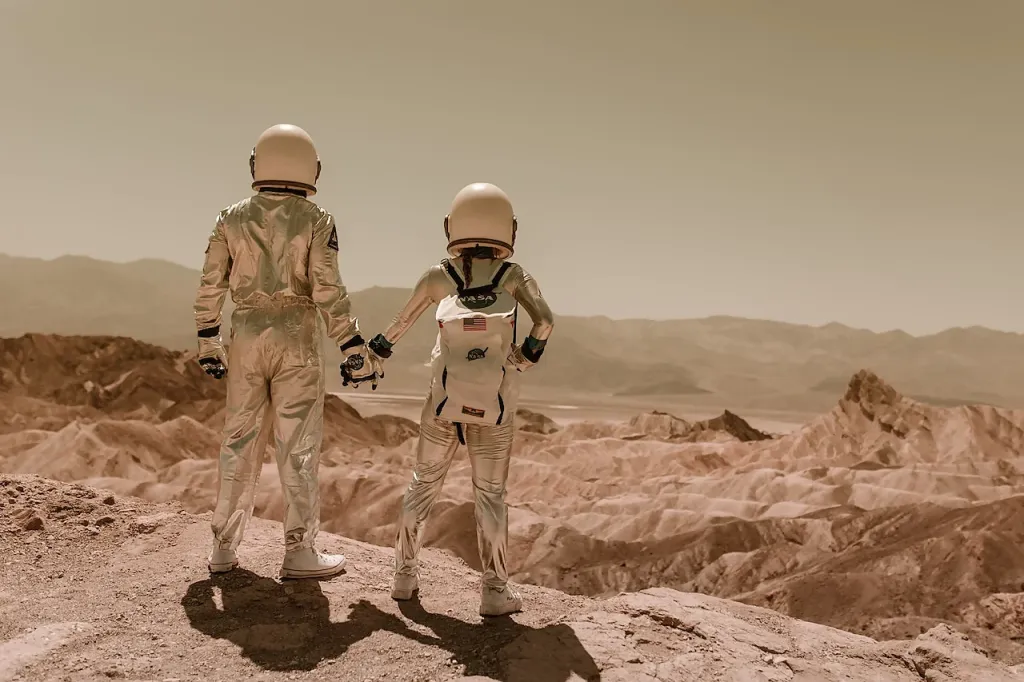Discovery of life on Mars could be the “worst news” for humanity
- February 1, 2024
- 0
You may have heard of the Fermi Paradox, but if you haven’t, let’s take a quick look: Given the high probability of alien life in the universe, why
You may have heard of the Fermi Paradox, but if you haven’t, let’s take a quick look: Given the high probability of alien life in the universe, why

You may have heard of the Fermi Paradox, but if you haven’t, let’s take a quick look: Given the high probability of alien life in the universe, why hasn’t anyone made contact yet? Why haven’t we had any contact with representatives of alien civilizations?
If there are many civilizations perhaps more advanced than ours, given the age of the universe, why don’t they do the same thing as us: send out probes and look for signs of life?
One concept is the Great Filter. According to this hypothesis, before alien civilizations leave star systems and begin colonizing the galaxy, something happens to prevent them from doing so. We do not know whether this was the transition from single-celled life to tool-using animals or whether it occurred after we reached our current level of development.
It is unknown whether humanity has passed through this “great filter” or is still ahead. Is it possible that most civilizations have not been able to transition from single-celled life and that we are an exception? Or maybe we, like other civilizations, will destroy ourselves before we can leave Earth due to wars or resource depletion?
Some philosophers and scientists believe that the discovery of life on Mars could have negative consequences for our understanding of the location of the Great Filter.
Oxford University philosophy professor Nick Bostrom hopes that the search for extraterrestrial life will prove fruitless. According to an article in MIT Technology Review (2008), if we find simple life forms, this would indicate that the filter existed after this stage of evolution. The discovery of multicellular life will further narrow down the possible moments of “filtration”.
Bostrom believes we need to analyze life on Earth to determine which evolutionary steps are unlikely. He writes that if an event occurs only once, it can be a pivotal moment. For example, the ability to fly, vision, photosynthesis, and limb development are not candidates because they have evolved many times on Earth.
It also points to evolutionary events that occur after a long period of preparation, such as the first emergence of life, as signs of an unexpected transition. Evolution from animals to humans occurred relatively quickly on a geological scale, making it a poor candidate for the Great Filter event.
If we find vertebrates on Mars (which is unlikely, but possible), Bostrom sees this as a bad sign, because it means that much of the Great Filter has not yet arrived and we could be in danger of extinction before reaching technological maturity. interstellar travel.
“Such a discovery would be a real coup. It would be the worst news ever printed on the front page of a newspaper,” Bostrom writes. “Therefore, I hope that our space probes will find only lifeless rocks and sand on Mars, Europa (the moon of Jupiter) and other places of work of our astronomers. This will make us hopeful for a great future for humanity.”
So while there are other theories explaining the Fermi paradox, if Bostrom is right, finding evidence of advanced civilizations would be good news, but finding false stages of independently evolving life in our solar system would be the worst possible news. Source
Source: Port Altele
As an experienced journalist and author, Mary has been reporting on the latest news and trends for over 5 years. With a passion for uncovering the stories behind the headlines, Mary has earned a reputation as a trusted voice in the world of journalism. Her writing style is insightful, engaging and thought-provoking, as she takes a deep dive into the most pressing issues of our time.